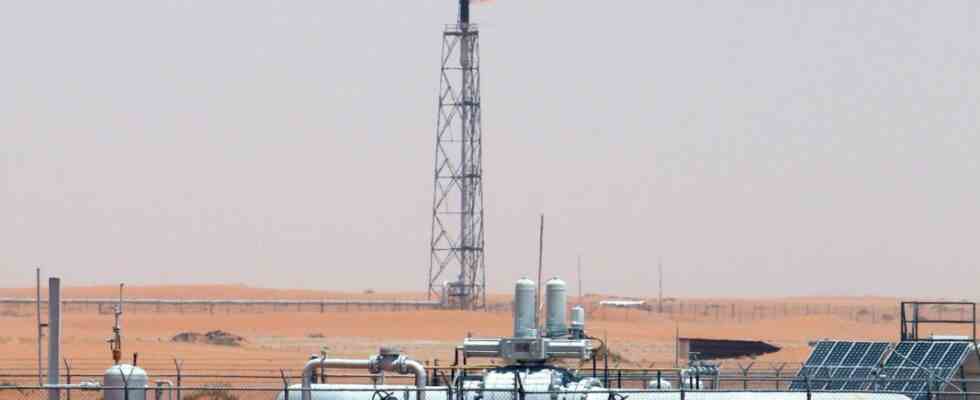Olaf Scholz and Joe Biden have been badly beaten in their home countries for traveling to Saudi Arabia in the summer, shaking hands with Crown Prince Mohammed bin Salman and thus bringing the suspected man behind the murder of a journalist back into the circle of well-respected heads of government. The Chancellor and US President defended themselves by saying that in times of a truly historic energy crisis, the world’s largest oil producer is needed to secure supplies at home. We now know that this strategy has failed across the board.
Not only that the OPEC plus production cartel decided this week to cut the joint production volume by two million barrels, i.e. around 320 million liters, per day in order to stabilize the oil price. In fact, bin Salman and his comrades-in-arms had no problem filling the war chest of cartel member Vladimir Putin. If one more proof was needed that the West’s efforts to have the Russian president outlawed worldwide are increasingly coming to nothing, then this is it.
Nevertheless, the interpretation of some Western observers that bin Salman wanted to politically get one thing over against the USA and its allies is rather questionable. It is more likely that the prince only had his own interests in mind. He needs $70.80 in oil to pay for all the social goodwill he does to keep his subjects happy and quell resistance. The price had recently come dangerously close to this mark.
The truth is arguably Saudi Arabia, the United Arab Emirates and other US “allies” don’t give a damn about Ukraine or even something as meaningless as human rights. The autocratic rulers are only concerned with themselves and maintaining their power. They make good friends with the West when it comes to fighting their long-standing common enemy, Iran, or when they need weapons. And they flirt with Russia just as nimbly when their interests as oil suppliers are at stake.
The Opec-plus countries are undermining the West’s fight against inflation
But what does the OPEC plus decision mean economically? At first glance, one might think that a two million barrel cut in production would not matter that much, since it corresponds to just two percent of world production. However, the development of the oil price speaks a different language: it has increased by almost ten percent within a week. In doing so, the Opec-plus countries are not only undermining the efforts of Western central banks to curb inflation. They also torpedo the efforts of politicians to shield citizens and companies from the worst consequences of the energy crisis. However, as is so often the case, the main victims are the emerging and developing countries, for which oil and gas are becoming increasingly unaffordable. The fact that both energy sources are mostly billed in dollars, which in turn is stronger than it has been in 20 years, makes things even more dramatic.
However, the oil states could also have scored a classic own goal with the production cut. The aim of the decision is to stabilize the price at a high level, even though the global economy is already weakening massively due to the triple crisis of pandemic, weather chaos and war and the demand for oil is falling accordingly. With the current price increase, this process could be accelerated. This is all the more true if the votes of those who want to temporarily ban the export of American crude oil in view of the forthcoming congressional elections should prevail in the White House. This would further reduce global supply and drive up prices accordingly.
In other words: Opec plus – and with it this time the USA – could trigger the global recession in the first place, against which they want to protect themselves by cutting back production or exports. In June 2020, at the peak of the first corona wave, you could see what that would mean for your funding income: At that time, a barrel still cost a whole 30 dollars.

